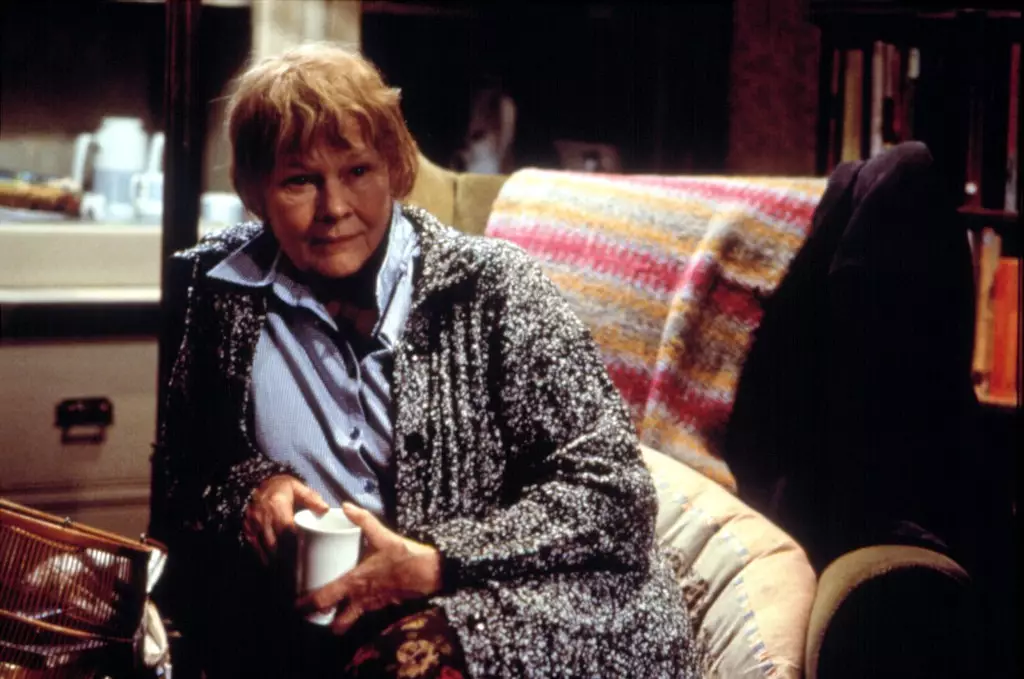Dame Judi Dench, an iconic figure in British cinema, is not just a celebrated actress; she’s also becoming a powerful advocate for those suffering from dementia, a condition that affects nearly one million individuals in the UK alone. Dench’s poignant performance as Iris Murdoch in the film *Iris*, where she played a woman grappling with Alzheimer’s disease, has equipped her with a unique perspective on the emotional and psychological toll of this devastating illness. Now, she leverages that insight to highlight a critical issue: the glaring inadequacies in the current dementia diagnostic system within the National Health Service (NHS).
Dench’s involvement comes at a time when early diagnosis has become an urgent necessity. The disheartening statistic that one in three individuals with dementia remain undiagnosed showcases a system that is not only broken but actively failing those who need help the most. The plight of those languishing for a year—or even longer—in the shadows of uncertainty while awaiting a clear diagnosis is heartbreaking. These delays, particularly pronounced in underserved areas, exacerbate the distress faced by patients and families alike. Dench’s advocacy is a clarion call, urging the government to take meaningful action.
Delays and Dilemmas: A National Crisis
Imagine living with a condition that robs you of your memories, your very essence, yet knowing you have no definitive answers as to why. This is the reality for countless families dealing with dementia. The emotional weight of watching a loved one fade, coupled with the confusion of untangling the bureaucratic knots of healthcare, can be overwhelming. Statistics illustrate that too many people are trapped in this limbo, with some waiting an entire year post-referral to even begin the diagnostic process. The alarm bells are ringing, and yet meaningful change remains evasive.
Alzheimer’s Research UK, a pivotal organization in this advocacy, has launched the “Dementia Unseen” campaign to tackle these horrifying delays. The campaign champions a proposed standard: individuals should be able to see a specialist within six weeks of their GP referral, and ideally receive a diagnosis within 18 weeks. Yet, what happens when such basic rights are not met? Current government plans to abandon a target of diagnosing 66.7% of those over 65 with dementia signal a troubling disregard for the urgency of the situation.
Empowerment Through Understanding
The heart of Dench’s message lies in the empowerment that comes with understanding one’s condition. She eloquently articulates that receiving a diagnosis doesn’t simply mark the beginning of a difficult journey; it equips individuals and their families with the clarity needed to make informed decisions about the future. The importance of planning ahead cannot be overstated; it allows families to cherish the time they have left, navigating the complexities of life with more assurance.
Moreover, understanding the specifics of their condition opens doors to vital resources and potential participation in research, which could lead to better treatments. Dench drives home that, while a diagnosis may not resolve every issue, it provides a sense of agency for patients caught in a whirlwind of confusion and despair.
Facing a Terrifying Future
The daunting projection that the number of dementia cases will rise by 43% by the year 2040 only adds urgency to Dench’s advocacy. The call for a comprehensive and responsive health care strategy is more critical than ever, especially in a society that prides itself on its advancements in medical care. The moral responsibility to provide timely and accurate diagnoses is not just about statistics—it’s about human dignity and the right to live with knowledge and choice.
Hilary Evans-Newton, Chief Executive of Alzheimer’s Research UK, amplifies this sentiment, expressing gratitude for Dench’s voice in elevating the conversation about dementia care. It is incumbent upon society to mobilize in support of all those affected by this condition, ensuring that no one has to endure the agony of uncertainty alone.
Ultimately, Dench’s efforts shed light on a profound truth: the fight against dementia is not solely medical; it is a deeply personal battle that affects families and communities. With the right diagnosis and support, individuals can reclaim dignity amidst the chaos, and that’s a goal worth fighting for.

Leave a Reply